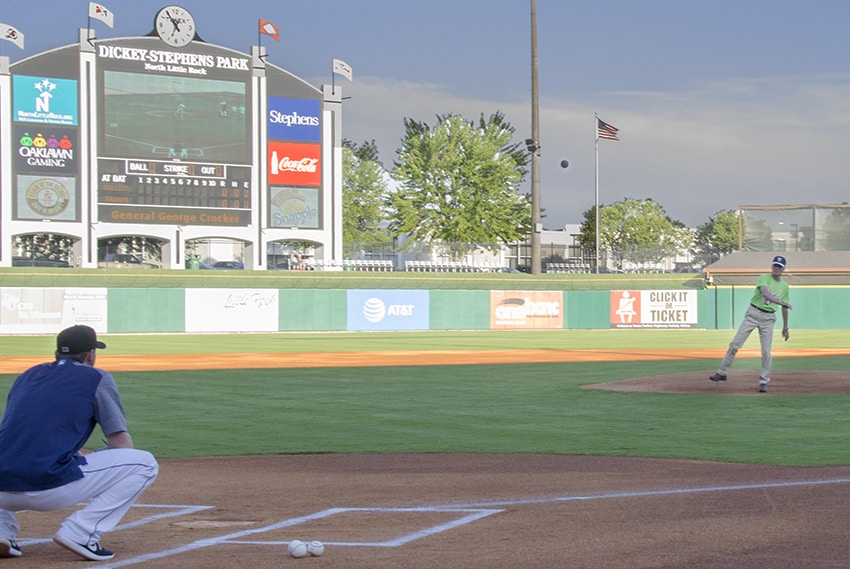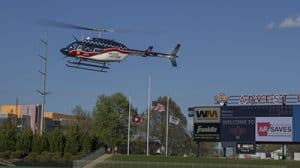Strike Out Stroke Nights Add Third Baseball Game in 2017
| June 29, 2017 | Strike Out Stroke became a three-game series in 2017, adding University of Arkansas at Little Rock Trojans baseball to the roster alongside game nights at Arvest Park in Springdale in April and at Dickey-Stephens Park in North Little Rock in June.
It was the seventh year Arkansas Stroke Assistance through Virtual Emergency Support (AR SAVES) organized Strike Out Stroke nights at the parks to raise awareness of stroke and educate the public about stroke symptoms and risk.
Mega Brain for the second year in a row continued to wow visitors at two of the AR SAVES Strike Out Stroke games. Hundreds of people at the Little Rock Trojans and Arkansas Travelers games walked through the anatomically correct, inflatable model of the human brain.
Before the North Little Rock game June 6, a helicopter brought stroke neurologist Sanjeeva Reddy Onteddu, M.D., AR SAVES medical director, to deliver baseballs for the game’s first-pitch ceremony, all strikes against stroke.
In Springdale on April 6, another helicopter transported Washington Regional Medical Center neurologist Margaret Tremwel, M.D., to Arvest Park to do the same thing. AR SAVES stroke survivors were honored at all the games serving as a reminder to others that getting to the hospital quickly can prevent stroke death and disability.
Stroke survivors at the ballparks threw first strikes before the baseball games, and other stroke survivors were recognized on the fields as well.
To help Arkansans learn how to survive stroke, AR SAVES leadership, staff, volunteers and community partners organize or are a part of dozens of events throughout the year, including “Strike Out Stroke” nights.
“This is an important part of UAMS’ mission — reaching out to other areas of the state and helping local physicians and nurses identify and treat patients with stroke to improve the patients’ outcomes,” said Renee Joiner, director of AR SAVES.
AR SAVES uses a high-speed video communications system to help provide immediate, life-saving treatments to stroke patients 24 hours a day. The real-time video communication enables a stroke neurologist to evaluate whether emergency room physicians should use a clot-busting blood thinner within the critical three-hour period following the first signs of stroke.
Arkansas ranks sixth in the nation in stroke death rates. Surviving a stroke is becoming more likely as more community hospitals join the SAVES network.


